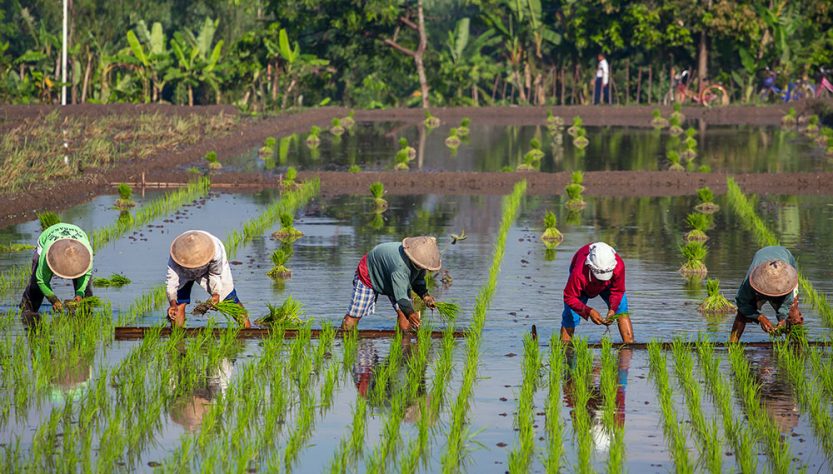Malaysia Population Research Hub

INTRODUCTION
Malaysia’s population stands at 32,581,400 in 2019 and is increasing at the rate of 0.6 percent per annum. With the ever increasing population growth, the demand for food is estimated to increase by 70 to 100% by 2050. Population upsurge is posing a dire threat to the food security. Therefore, establishing food security is becoming essential in order to sustain the economic growth of Malaysia as well as to cater the needs of millions of hungry people. Although Malaysia is self-sufficient in poultry meat, pork, fisheries and eggs, we are still depending on the imports of numerous food commodities such as rice, fruits, dairy milk and beef. National spending on imports of food has reached RM34.2 billion as of August 2019, official figures showed recently, pointing to increased dependency on food purchases.
FOOD SECURITY
According to the United Nations’ Committee on World Food Security, food security is well defined as the condition where all people have physical, social and economic access to an adequate, safe and nourishing food that meets their daily nutritional needs and food preferences for an active and healthy lifestyle.
Malaysia occupies a commendable position in the 2019 Global Food Security Index, jumped to the 28th place compared to the 48th position in 2018. The national level food availability data indicate that there is sufficiency in the supply of major food commodities for the population. In Malaysia, abundant food supply and availability, as suggested by the daily per capita dietary energy supply, means that the food system supplies adequate dietary energy to the population.
Malaysia occupies a commendable position in the 2019 Global Food Security Index, jumped to the 28th place compared to the 48th position in 2018. The national level food availability data indicate that there is sufficiency in the supply of major food commodities for the population.
All major foods are available in sufficient quantities to meet market demand, which should not be equated with human needs. Food access is no longer an issue for most Malaysians, with better processing, transport and storage systems and distribution arrangements, for most major food items. Several programmes are being implemented under the National Agro-Food Policy (2011-2020) to improve the performance of subsectors comprising of production, processing and logistics. The measures taken include increasing food production through optimised and sustainable land development, upgrading agricultural infrastructure, as well as increasing the quality and safety of food by improving compliance to standards.
With the fourth industrial revolution upon us, the time has come for the agricultural sector to embrace technological developments. One initiative would be to invest more in research and development (R&D) to catalyse the development of high yielding hybrid varieties.
NUTRITION AND POPULATION HEALTH
Based on the periodic National Health and Morbidity Survey, Malaysia still faces the double burden of malnutrition, with rising rates of childhood obesity as well as stunting among children. Malaysian children today are growing up in an obesogenic environment that leads to sedentary lifestyle and unhealthy eating habits. The National Nutrition Policy of Malaysia 2005 is a landmark effort by the government to ensure the nutritional well-being of Malaysians. It represents the commitment of the government for people to have access to adequate, nutritious, safe and quality food and the right information and support to practice healthy eating.
The National Plan of Action for Nutrition of Malaysia (NPANM) is the framework for action to address food and nutrition challenges in the country. It is the nation’s blue print to promote optimal nutritional well-being of Malaysians through a series of strategies and activities. The Plan underscores the importance of nutrition in enhancing population health and preventing diet-related diseases.
SUSTAINABLE FOOD AND AGRICULTURAL SYSTEMS
Food and agriculture are both fundamental in shaping food security and nutrition, where the food produced by farmers and fisherfolk sufficiently supply and satisfy the population. Realising this, the Malaysian government has taken steps to emphasis on self-sustainability. The agroecosystem management and agricultural planning has been revamped to ensure sustainability and to include green-friendly values and equitable and inclusiveness of all stakeholders.
The National Plan of Action for Nutrition of Malaysia (NPANM) is the framework for action to address food and nutrition challenges in the country. It is the nation’s blue print to promote optimal nutritional well-being of Malaysians through a series of strategies and activities
Therefore, innovation in agriculture and food has to be stepped up and the opportunities of biotechnology, nanotechnology, information and communication technology and other advanced technology applications should be the main research and development agenda particularly on sustainable agricultural practices.
Hence, adopting and integrating the IR4.0 technology is one of the ways forward to optimise production within the agricultural system, in line with the government’s call for automation to modernise the agricultural sector through the efficient use of land and cultivation of cash crops to provide better returns and increase farmers’ income.
Download: PopInfo Issue 1 2020